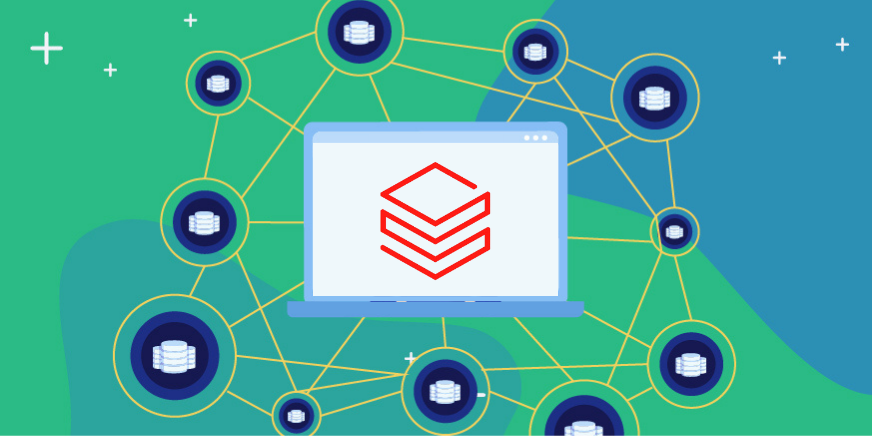Data is essential to modern businesses, and organizations are overwhelmingly motivated to become more data-driven. However, organizations face a challenge in aligning the use of data with security and privacy objectives.
In this blog post, we discuss the results from an S&P report about the most significant barriers facing organizations today as they become more data-driven. The report identifies manual approaches to data operations as the most significant cost-efficiency factor for organizations.
Challenges to Becoming More Data-Driven
According to the S&P Research’s Voice of the Enterprise survey, 80% of respondents indicated that data will be either significantly or somewhat more important; 30% of these respondents also indicated that data security is one of the most significant barriers they face in becoming more data-driven.
We explore some of the most significant barriers that data-driven organizations face.
Data Security
In many organizations, security, privacy, and compliance efforts are seen as cost centers. However, organizations that neglect security, privacy, and compliance are at risk for data breaches or failed audits. Data breaches and misuse of personal information have significant financial and reputational consequences, as well as legal and regulatory consequences.
The failure to adequately secure data can lead to a lack of customer trust. Customers and stakeholders may be hesitant to share their data if they don’t trust that it will be used and stored appropriately. This can limit the amount and quality of data organizations have access to, making it difficult to develop accurate insights and make informed decisions.
Availability of Budget
Another significant barrier to becoming more data-driven that the S&P respondents identified is the availability of budget. The lack or perceived lack of budget can manifest in a variety of ways, such as a lack of funding for new technology and the inefficient allocation of time and labor resources.
Many organizations may be discouraged from becoming more data-driven by the necessity of increasing security on their data that is spread across a wide range of cloud data stores. The overwhelming cost and complexity associated with establishing different security controls can reduce the organization’s push to become more data-driven.
The inefficient allocation of data engineering and DevOps teams’ time and resources is a significant cost. These teams often find themselves inundated by data access requests and having to manually grant access to data is inefficient from both a time and labor perspective as these teams could be using their time and human capital on other revenue-generating or productive projects.
Data Governance
Organizations are striving towards “improved regulatory and legal compliance” (40%) as well as “facilitated self-service data culture” (34%). Establishing a solid data governance plan, including data security and data privacy can streamline access to data. By improving the efficiency of the different teams and ensuring that data is efficiently allocated throughout the organization and that customers access the necessary data to improve their data-driven decision making.
Unfortunately, while respondents identified data governance as highly important, these are the skills, roles, and functions that are least developed. Approximately one-third (32%) of respondents reported that “IT engineering to configure and manage infrastructure/cloud resources” and another 26% said the same for “data engineering to configure and manage data pipelines.”
The motivation to improve data governance and privacy efforts is diverse. It is not just tied to external requirements; it also includes facilitating self-service data culture. However, skills and support for these efforts within organizations are often lacking.
Data governance is a critical part of an organization’s goal to become more data-driven. As the survey results show data governance is a necessity but organizational leaders feel underprepared to deal with developing this aspect of data security.
Lack of Automation
A lack of automation compounds the previously identified challenges, as modern IT ecosystems are complex and nearly impossible to manually manage entirely. Not only is automation necessary for improving cost efficiency in the short run, but there are also long-run implications. Automation is a crucial factor in maintaining consistency and scalability.
It is critical that organizations align their objectives related to data security and privacy with their efforts to use data more effectively. Failure to overcome these barriers has not only first-order but also second-order effects on the budget.
There are a number of significant barriers to becoming more data-driven. The S&P report emphasized manual approaches as a critical determinant in organizational cost-efficiency. We explore the three main impacts of manual approaches in more detail.
Business Impact of Manual Approaches
1. Importance of Having a Data Security and Privacy Data Culture.
Data security and privacy practices are essential components of a data-driven culture. Previously security and privacy practices were implemented in an ad-hoc fashion decreasing worker productivity. Organizations that invest in developing a data security culture within their organization can enhance their ability to work together to increase that data is used quickly and efficiently.
2. A lack of security and compliance.
The absence of proper security and compliance measures can serve as the underlying cause of several issues with various associated hidden costs. The obvious costs of regulatory fines for failing to meet compliance requirements are compounded by the resulting delays of many data projects as data teams work to bring the organization back into compliance. These delays have significant monetary consequences and reduce the ability of organizations to successfully leverage data.
3. Manual Approaches.
Some of the perceived cost-centers associated with security and privacy are related to the often necessary extensive manual setup. Data engineering teams are often required to spend a significant amount of their time and resources writing custom code and designing custom database architecture.
The impact of using these resources is the opportunity cost of the data engineering team’s time and resources. They give up other productive (and probably more interesting projects) to focus on developing these requirements. Aggravating these costs further are the unintended consequences of granting blanket access to data which results in over-privileged access and increases the organization’s risk exposure.
Manual approaches raise the cost of the project by increasing the time and resources. This is especially true if the necessary work is unique and specialized, which significantly increases the skills and labor costs.
Conclusion
Data-driven organizations can no longer identify data security and data privacy practices as separate functions. Instead, interdependence necessitates that organizations develop a democratized data culture. In order to facilitate data democratization, requires access controls to data that are both automated and secure enabling organizations to quickly and easily share data and optimize business decisions.
The S&P report identified automation as the missing link in organizations’ ability to leverage increasing volumes of data. Automating data access controls are necessary in order for data-driven organizations to maintain and scale their operations. This enables the organization to remain secure and compliant while also optimizing business decisions. The ability to automate access to data is cost-efficient by generating productivity of DevOps and Data engineering teams, as well as other members of the organization.
To learn more about how Satori’s Data Security Platform can help with automation book a demo with one of our experts.




